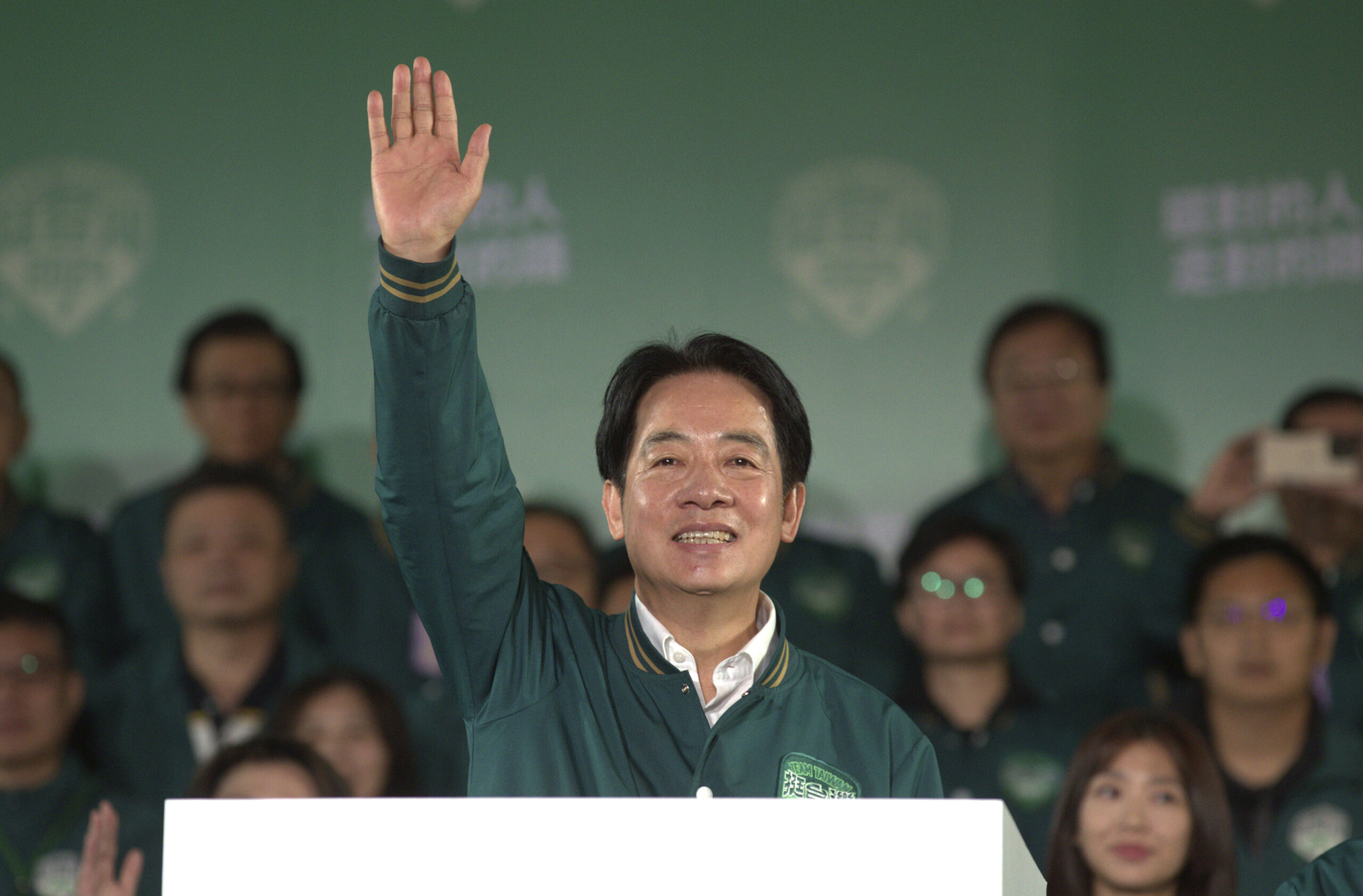
The 2024 Taiwan election has finally concluded, revealing a complex political landscape. The ruling Democratic Progressive Party (DPP) led by President Lai Ching-te and Vice President Hsiao Bi-khom secured victory with 5.58 million votes (40.05%), breaking the historical trend of presidential incumbents winning two consecutive terms. However, it is noteworthy that 8.36 million voters did not support the Lai-Hsiao ticket. Despite winning the presidential race, the DPP faced setbacks in the legislative elections, making the Kuomintang (KMT) the majority party in parliament. While the victory is acknowledged, the term “narrow victory” aptly characterizes the outcome for the Lai administration, which now grapples with the loss of parliamentary majority and internal reflections on nomination issues, power transition missteps, and flawed campaign strategies.
In contrast, KMT’s Hou You-yi and Chao Shao-kang aggressively mobilized their supporters, employing a strategy centered on cultivating resentment. Constantly attacking the ruling party on corruption allegations, they proposed reviving a “Special Investigation Division” to probe issues like mask distribution, green energy initiatives, and vaccine procurement. As the election progressed, the focus shifted to leveraging the “blue-white cooperation” and “give up or guarantee” themes to secure victory. While the KMT emerged as the largest party in the parliament, it fell short of achieving a presidential turnover.
Previously considered subject to polling inaccuracies or the potential impact of “give up or guarantee” sentiment, the Taiwan People’s Party (TPP) managed to reverse its fortunes in the late stages of the campaign. The party strategically invited social media influencers to engage young voters and translate online support into actual votes. The TPP emerged as the biggest winner of this election, but due to the lack of regional legislative seats, despite securing 26% of the presidential vote, it only obtained 8 at-large legislative seats, preventing it from becoming a significant force in the parliament.
China, intervening in Taiwan’s election through economic sanctions, military aircraft patrols, and disinformation campaigns, found it difficult to accept the re-election of the DPP. However, the Taiwan Affairs Office could only self-deprecatingly claim that the majority of Taiwan’s people do not support the independence-leaning government represented by Lai Ching-te.
President Tsai Ing-wen played a pivotal role in the 2024 election. Compared to 2020, Lai’s camp lost 2.6 million votes in the presidential race. The inclusion of Hsiao Bi-khim, seen as Tsai’s potential successor, likely contributed to Lai’s success. Tsai’s outstanding achievements as president posed a challenge for Lai’s campaign. Their strategy appeared reactive, culminating in a conservative approach of “choosing the right people and the right path” to counter the KMT’s challenge. Lai failed to present a comprehensive policy blueprint or a vision for Taiwan’s future, relying solely on appeals for stable governance. The DPP seemed to replicate the KMT’s historical tactics of emphasizing economic growth and cross-strait peace without articulating a forward-looking vision, marking a significant drawback in their 2024 campaign.
While New Taipei City Mayor Hou You-yi might be a strong mayoral candidate, he falls short as the KMT’s presidential nominee. Lacking endorsement through the KMT’s internal nomination process and lacking experience in national security, cross-strait relations, and diplomatic defense, Hou resorted to the low-cost strategy of playing the “resentment card” to achieve political turnover. The fact that the percentage of voters supporting the KMT party vote exceeded those supporting Hou You-yi’s presidential candidacy highlights his failure to inspire enthusiasm among KMT supporters. The KMT’s success in regional legislative elections was driven by the fermenting effect of blue-white cooperation targeting the defeat of incumbent DPP legislators in local constituencies, rather than the merits of their presidential candidate or local leaders.
The Taiwan People’s Party, led by Ko Wen-je, showcased a remarkable performance in the 2024 presidential vote. While both the KMT and TPP called for “blue-white cooperation” to overthrow the DPP, after the election, Lai Ching-te suggested a “Democratic Alliance” and rumors circulated about a “green-white cooperation.” If true, the Taiwan People’s Party might form an alliance with the DPP, contributing to a stable majority in the parliament. While this move could garner more support for the Taiwan People’s Party, demonstrating legislative influence, it also risks factional divisions and might dampen voter enthusiasm, influencing the party’s future mobilization efforts.
In Taiwan’s election history, many small parties aligned with the ruling party only to fizzle out after four years. Ko Wen-je and the Taiwan People’s Party face a choice in the Legislative Yuan Speaker election on February 1st. Whether they opt for a stable ruling party coalition or position themselves as a parliamentary opposition monitoring the ruling party depends on Ko’s political acumen and the Taiwan People’s Party’s determination.
The most significant loser in this election is arguably former President Ma Ying-jeou. During President Tsai Ing-wen’s last New Year’s address in 2024, she cautioned against endorsing China’s “1992 Consensus,” “One China Principle,” and falling into the predicament of China’s proposed “One Country, Two Systems”. Ma Ying-jeou’s advocacy of the 1992 Consensus not only became a historical artifact but also served as the final straw that adversely impacted the Hou You-yi campaign.
The outcome of the 2024 Taiwan election may be seen as a fortuitous arrangement for the development of Taiwanese democracy. The emergence of two seasoned political parties and one youthful party injected new elements and opportunities into the election. Post-election, these three parties face distinct challenges, embarking on different journeys. The 2024 election underscores the enduring influence of local political dynasties in the district-based electoral system. The harsh reality is that while these three parties receive state political subsidies, smaller political parties were entirely obliterated in this election.
カテゴリー
最近の投稿
- Internationalizing the Renminbi
- 習近平の思惑_その3 「高市発言」を見せしめとして日本叩きを徹底し、台湾問題への介入を阻止する
- 習近平の思惑_その2 台湾への武器販売を躊躇するトランプ、相互関税違法判決で譲歩加速か
- 習近平の思惑_その1 「対高市エール投稿」により対中ディールで失点し、習近平に譲歩するトランプ
- 記憶に残る1月
- 高市圧勝、中国の反応とトランプの絶賛に潜む危機
- 戦わずに中国をいなす:米国の戦略転換と台湾の安全保障を巡るジレンマ
- トランプ「習近平との春節電話会談で蜜月演出」し、高市政権誕生にはエール 日本を対中ディールの材料に?
- A January to Remember
- Managing China Without War: The U.S. Strategic Turn and Taiwan’s Security Dilemma

